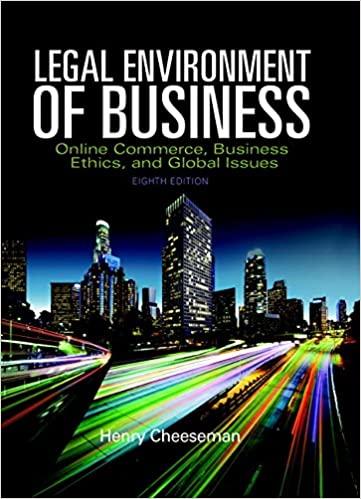Question
Police have an arrest warrant to arrest John Smith. They have information that he is staying in the No-tell Motel, and they ask the clerk
Police have an arrest warrant to arrest John Smith. They have information that he is staying in the "No-tell Motel," and they ask the clerk if he is registered there. The clerk confirms he is a guest. The police knock on the door and see Mr. Smith glance through a curtain. They advise him of the arrest warrant, but he does not open the door. They get the motel manager to open the door with a passkey and when they enter, they see Mr. Smith laying on the bed. On the nightstand next to the bed the police see a kilo of coke and seize it. At trial the cocaine would
A: Not be admitted - Mr. Smith was an overnight guest, and the clerk cannot consent to entry into his room for Mr. Smith.
B: Be admitted as the cocaine was found as a part of a search incident to a lawful arrest
C: Not be admitted as the clerk, while acting with the police, violated Mr. Smith's right of privacy and the exclusionary rule will apply to him just like it would any other police officer.
D: Not be admitted as the police needed a search warrant - this is a hotel room where Mr. Smith had an expectation of privacy.
Step by Step Solution
There are 3 Steps involved in it
Step: 1

Get Instant Access to Expert-Tailored Solutions
See step-by-step solutions with expert insights and AI powered tools for academic success
Step: 2

Step: 3

Ace Your Homework with AI
Get the answers you need in no time with our AI-driven, step-by-step assistance
Get Started


